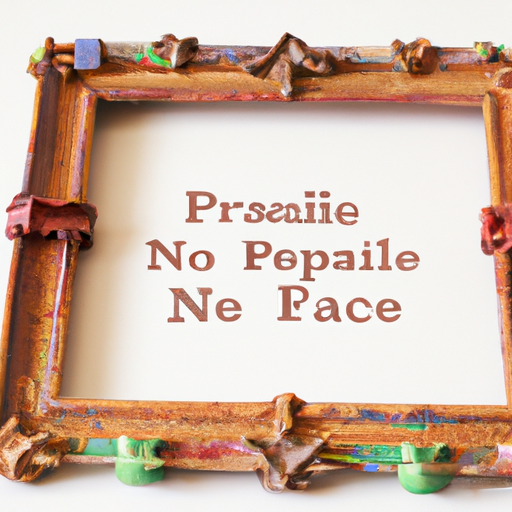The Advantages of Psychic Readings for Augmenting Intuitive Insight
 Have you ever felt an unmistakable inner certainty—a gut instinct you couldn’t fully articulate—but knew it was authentic? Perhaps it was a feeling about someone, a sudden urge to choose a different route, or an instinctual reaction that proved to be spot on.
Have you ever felt an unmistakable inner certainty—a gut instinct you couldn’t fully articulate—but knew it was authentic? Perhaps it was a feeling about someone, a sudden urge to choose a different route, or an instinctual reaction that proved to be spot on.
That subtle inner voice was your intuition communicating, and it is more powerful and precise than many realize. The wonderful news is that this inherent knowledge isn’t reserved for the select few. Everyone possesses intuitive insight. It acts as a significant guide that we all have, and it strengthens with practice.
A very effective method to enhance your intuitive perception is to collaborate with a knowledgeable psychic advisor who can help you exercise your intuitive capabilities, boost your confidence, and broaden your energetic awareness.
Think of a trusted psychic as a tuning fork for your spirit. When they tap into insights that lie just beyond your conscious understanding—whether it’s through energetic vibrations, symbols, impressions, or timelines—they create a resonant space that awakens and confirms what you may have sensed but struggle to articulate.
That moment of “Absolutely! That feels so right!” signifies your inner truth being acknowledged and validated. It’s not about the psychic revealing something new to you; rather, it’s about reminding you of what your soul inherently knows.
In this fashion, psychic readings are not passive experiences. They are highly interactive. You are not simply a recipient of insight—you actively participate with your intuitive awareness. Over time, this participation allows you to discern patterns: how your body reacts to truth, how subtle sensations guide you, and how your dreams, coincidences, and inner prompts carry deeper significance than you might have realized.
Practice tuning into your intuition, your inner voice; ask questions; cultivate curiosity; observe what you see; listen to what you hear; and then act upon what you know to be true. These intuitive gifts were given to your soul at birth ~ Clarissa Pinkola Estés
Imagine listening to a language foreign to you. Initially, it’s just a jumble of sounds. But with persistent exposure, your mind starts to recognize repetitive words, tonal variations, and emotional subtleties. Ultimately, comprehension begins to occur. Intuition operates similarly. By observing how another—like a psychic—connects with subtle dimensions, you refine your own internal awareness. What may have once seemed like background noise evolves into a fluid conversation with your higher self.
Consider, for example, if during a reading the psychic draws your attention to a persistent feeling you’ve brushed aside as mere anxiety. Instead of disregarding it, they redefine it as an instinctive warning that your spirit has been trying to convey. With this fresh perspective, you recognize that your “anxiety” consistently arises when things are out of balance. The next time it surfaces, instead of neglecting or suppressing it, you listen. You take action. And situations improve.
Or perhaps the psychic mentions a forthcoming opportunity that doesn’t immediately seem logical—something unplanned or unexpected. At first, you might store it away in your mind. But when signs begin to manifest, you recognize them. Instead of hesitating, you respond with assurance and decisiveness. That’s the beauty of sowing intuitive seeds: they flourish when the time is ripe, and you are prepared.
While rational thinking is crucial for addressing everyday issues—making choices based on facts, structuring plans, solving problems—it functions within the scope of what is already known. Conversely, intuition taps into a broader consciousness. It is not constrained by linear time or material proof. If logic is the roadmap highlighting previously trodden paths, intuition is the compass steering you off those paths—toward soul-aligned destinations that you may not have previously contemplated.
As you cultivate and trust your inner guidance, your life transforms into a more fluid and harmonious experience. You will no longer need to learn every lesson the difficult way. Instead of persistently facing hurdles, you start to foresee them and navigate around them with grace. Your decisions become less burdened with uncertainty. Your relationships clarify. And your path ahead resonates more authentically with your profound purpose.
Our physical forms have five senses: touch, smell, taste, sight, and hearing. Yet we must not neglect the senses of our souls: intuition, peace, foresight, trust, and empathy ~ C. JoyBell C
This is the significant gift of collaborating with a psychic advisor—not dependency, but empowerment. A truly gifted psychic does not dictate what you should do or claim to possess more knowledge than you. Instead, they reflect the wisdom of your soul and assist you in hearing it more clearly. They create a space for you to reconnect with your inner truth, especially during times when fear, confusion, or doubt obscure your clarity.
In many respects, a quality reading resembles standing before a sacred mirror—one that reflects your highest self and deepest understanding. Through this reflection, you start to recognize your inner voice with greater clarity. And the more you acknowledge it, the more confidently you can follow its guidance.
So, if you feel inspired to delve into psychic readings, do so not just for the insights they offer, but for the intuitive awareness they awaken within you. With time, practice, and a readiness to listen deeply, you will discover that the answers you seek are not only attainable—but already alive within you.
Your intuition is your inherent right. Allow it to speak. Allow it to lead. And allow it to flourish.
|
Known as The Psychic’s Psychic, since 1998, Isadora has read for thousands all over the world, her impressive list including clients from the Obama administration, Fortune 500 CEO’s and notable names in Hollywood. Her detailed (Gemini) accuracy is nothing short of astounding, with her ability to see people at the Soul Level and clearly answer questions on a wide range of subjects, from relationship matters, business decisions, to past lives, etc.—anything that requires clear answers and pin-point insight. She has the ability to identify hidden patterns that run beneath your current situation, providing you with information to positively change your future. If you’d like a reading with this compassionate, straight forward, laser-accurate and dedicated Psychic, you can find Isadora at PsychicAccess.com. |
Psychic readings have been a cherished practice for ages, with individuals seeking direction and understanding from those who assert they possess psychic talents. While some may question the authenticity of psychic readings, numerous people have experienced them as immensely beneficial for enhancing their intuitive wisdom and gaining a profound comprehension of themselves and their life’s journey.
One of the primary advantages of psychic readings is the opportunity to attain clarity and insight regarding various life areas. Whether concerning relationships, careers, health, or personal development, a psychic reading can furnish valuable information and guidance that assists individuals in making informed decisions and tackling challenges more effectively. By accessing the psychic’s intuitive gifts, individuals can obtain a new viewpoint on their circumstances and uncover hidden truths that might have previously eluded them.
Psychic readings can also aid individuals in accessing their own intuition and cultivating their psychic abilities. By observing a psychic’s work and experiencing the precision of their insights, individuals can start to trust their own intuition and learn to heed their inner voice more reliably. This can result in enhanced self-awareness, better decision-making capabilities, and a greater sense of empowerment in one’s life.
Moreover, psychic readings can provide validation and affirmation of one’s feelings and experiences. Often, individuals may experience a gut feeling or intuition about a situation but may question themselves or look for outside validation. A psychic reading can offer reassurance and affirm one’s intuition, helping individuals trust themselves and their instincts more fully.
Additionally, psychic readings can imbue a sense of comfort and tranquility. During periods of uncertainty or distress, a psychic reading can offer clarity and guidance that helps individuals feel more rooted and secure. By gaining insights into the broader scope of their life journey, individuals can feel more at peace and confident in confronting any challenges that arise.
In conclusion, psychic readings can serve as a valuable instrument for enhancing intuitive wisdom and deepening one’s understanding of themselves and their life path. By leveraging the psychic’s intuitive skills, individuals can achieve clarity, affirmation, and guidance that aids them in making informed decisions, trusting their intuition, and maneuvering through life’s challenges with greater ease and confidence. Whether one is skeptical or a believer, psychic readings can present a distinctive and enlightening experience that helps individuals unlock their full potential and lead a more fulfilling and authentic existence. Continue reading














